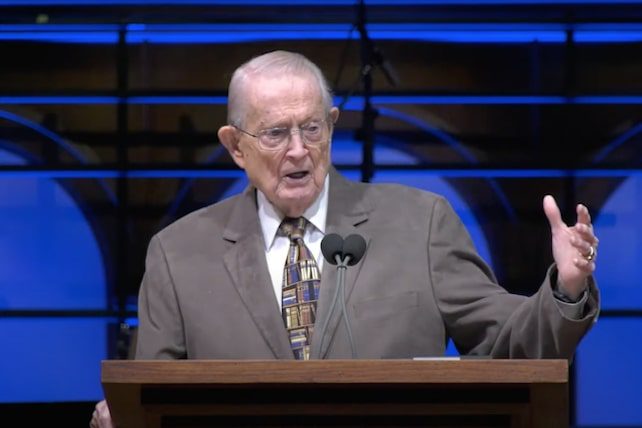In the tapestry of biblical narratives, few images are as vivid and thought-provoking as that of John the Baptist’s diet of locusts and wild honey. This peculiar dietary choice, mentioned in Matthew 3:4, not only sketches a portrait of John’s austere and ascetic lifestyle but also opens a gateway into exploring the significance of these foods within biblical and historical contexts. This article delves into the essence of locusts and wild honey, uncovering their nutritional, cultural, and symbolic layers and answering some of the most intriguing questions surrounding these biblical foods.
The Essence of Locusts and Wild Honey
What Food Was Locusts and Wild Honey?
Locusts and wild honey were staple foods in the diet of John the Baptist, a prophet known for his simple living and deep spiritual commitment. Locusts, belonging to the family of grasshoppers, are considered clean and edible according to Levitical laws (Leviticus 11:22). Wild honey, on the other hand, refers to the natural sweet substance produced by bees from the nectar of plants, collected from the wilderness away from human cultivation.
What Is the Significance of Locusts in the Bible?
Locusts carry a dual significance in biblical texts. While they are depicted as a form of sustenance permitted for consumption, they are also portrayed as instruments of divine wrath, symbolizing destruction and divine judgment in prophetic imagery (Exodus 10:12-15; Joel 2:25).
RELATED: Behind the Mysteries of Revelation 9
What Is Wild Honey in the Bible?
Wild honey, mentioned across various passages, symbolizes abundance, prosperity, and the sweetness of God’s promises. It is often associated with the land of Canaan, described as “a land flowing with milk and honey” (Exodus 3:8), highlighting the fertility and divine favor of the Promised Land.
What Does the Bible Say About Eating Locusts?
The Bible explicitly permits the consumption of locusts among a few other insects. Leviticus 11:22 states, “Of these you may eat: the locust of any kind, the bald locust of any kind, the cricket of any kind, and the grasshopper of any kind,” categorizing them as clean and fitting for consumption.
Why Did John the Baptist Only Eat Locusts and Honey?
John’s choice of diet underscores his ascetic lifestyle, symbolizing his dedication to spiritual purity and his role as a herald for Christ. This diet reflects his separation from worldly pleasures and his immersion in nature, preparing the way for the Messiah with humility and simplicity.
What Does Locust Honey Taste Like?
While “locust honey” might imply honey made by locusts, it’s a misinterpretation. The term refers to wild honey that John consumed alongside locusts. Wild honey’s taste can vary widely, depending on the types of flowers visited by the bees, but it generally has a richer, more complex flavor than cultivated honey, with hints of the wilderness it’s derived from.
Can You Eat Locusts?
Yes, locusts are edible and have been a part of diets in many cultures throughout history. High in protein, minerals, and vitamins, they are considered a sustainable and nutritious food source, especially in regions where conventional livestock farming is not feasible.
Do Locusts Produce Honey?
Locusts do not produce honey. The honey mentioned alongside locusts in the Bible refers to the product made by bees from flower nectar. The combination of locusts and wild honey in the biblical context highlights a diet of simplicity and natural provision.
What Is Locust Honey Made From?
As clarified, locust honey is a misnomer; the correct term would be wild honey, made from the nectar of wildflowers. Bees collect this nectar, transform it through enzymatic processes, and store it in honeycombs as honey.
Are Locusts a Delicacy?
In some cultures, locusts are indeed considered a delicacy. They can be prepared in various ways: roasted, fried, boiled, or dried. Their consumption is prevalent in parts of Africa, Asia, and the Middle East, celebrated for their nutritional value and flavor.
Nutritional and Cultural Insights
The dietary habits of John the Baptist, though seemingly austere, are rich in nutritional and cultural layers. Locusts, with their high protein content, represent a sustainable food source, while wild honey adds essential sugars and nutrients, symbolizing the sweetness and sustenance provided by nature.
Symbolism and Interpretation
The symbolism of locusts and wild honey extends beyond their immediate nutritional value, touching on themes of judgment, promise, and the sustenance of faith. John the Baptist’s diet, rooted in simplicity and natural provision, echoes a broader call to spiritual purity and readiness for the coming of the Messiah.
Conclusion
The biblical account of John the Baptist’s diet of locusts and wild honey opens a fascinating window into the interplay between sustenance, symbolism, and spirituality. This diet underscores the themes of simplicity, providence, and the bounty of nature, reflecting a lifestyle wholly dedicated to spiritual preparation and purity. As we explore the depths of these biblical foods, we uncover layers of meaning that resonate with cultural, nutritional, and spiritual significance, reminding us of the rich tapestry of symbolism woven throughout the biblical narratives.














 As a
As a 











